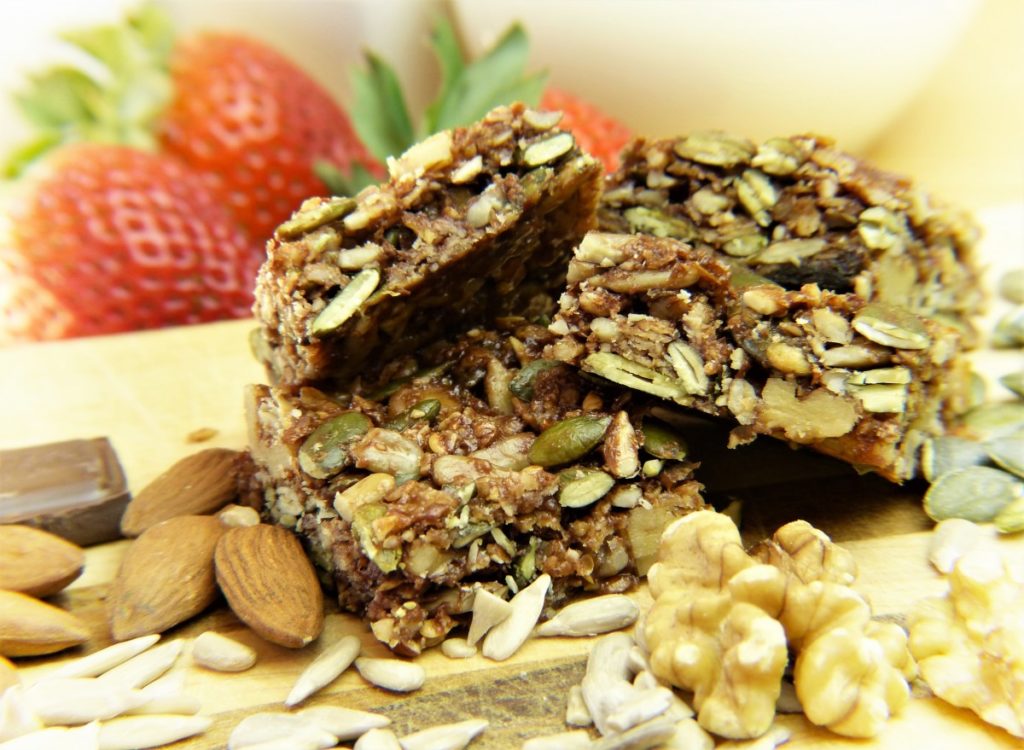With the millennial market currently dominating the food industry, new food trends are leaning towards healthy food products that are good sources of essential vitamins, minerals and protein. Protein bars have gained a lot of popularity within this segment, claiming to be nutritious, high in protein and other good-for-you ingredients. However, a recent study finds this popular food item to be a lot less healthy than it’s assumed to be.
The study, conducted by UK-based health, sports and travel specialist insurer Protectivity, revealed that more than a third of protein bars contain more saturated fat than a Krispy Kreme donut. Researchers also found ten out of the 56 bars studied have more sugar than the popular pastry. The insurer developed a “fitness food index” from their research on these well-known protein bars to help consumers analyze their options.
According to the index, the popular Nutramino Coconut Protein bar has 9.9 grams of saturated fat, which is more than double the 3.9 grams in a Krispy Kreme donut. PhD’s Smart Chocolate Brownie bar comes in second in the saturated fat category with 7.1 grams per bar. Almost 17 percent of a Yorkie’s Chocolate Crisp protein bar has saturated fat, about 6.9 grams total per serving.
Between 2010 and 2015, the American market for nutritional bars and shakes rose ten percent annually, topping $9 billion in 2016 sales alone. With the market estimated to jump 8.1 percent annually between now and 2021, many food manufacturers are investing in this category.
Major CPG companies have invested millions in acquiring or producing protein bar brands. Last fall, Kellogg Co invested $600 million in acquiring egg-white based RXBAR. Closely after Kellogg’s business move, Hearthside Food Solutions acquired Standard Functional Foods Group, a manufacturer of nutritional and functional bars. General Mills took an inward approach to this trend by investing in the growth of their Fibre One brand and expanding its portfolio into the protein bar category.
Protectivity’s findings are no surprise when considering the market value of protein bars as a whole. An issue faced by many manufacturers of high protein products is the overall taste of their bars and shakes. While many consumers look for high protein content in their nutrition bars, 10 to 30 grams of whey or soy-based protein does not produce a favorable taste. The prompts companies to add high levels of fat and sugar into their products to make them palatable for consumers.
Currently, this information is not widely known in the consumer market. However, if these survey results are advocated by well known health gurus and social influencers, the market for these bars could be significantly affected in a negative way. Nutrition bar manufacturers should consider reformulating their products to have a better ratio of protein compared to fat and sugar as consumers become more interested in food ingredients.












Join or login to leave a comment
JOIN LOGIN